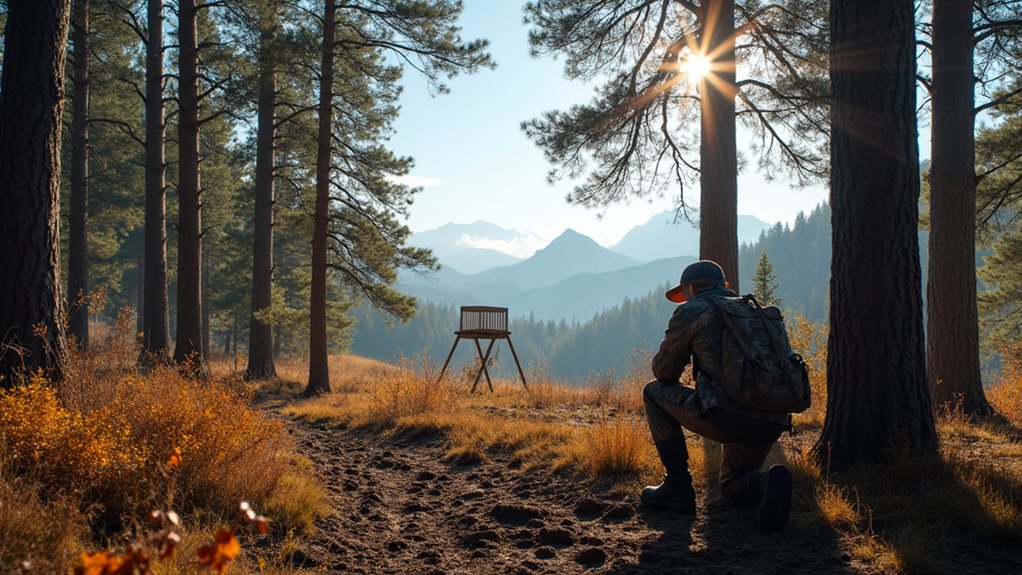Hunting culture is more than just a pastime; it’s a complex tapestry woven from tradition, community, and conservation. You may wonder how this culture has transformed from survival to sport and what that means for wildlife management and local economies. As you explore the key elements and misconceptions surrounding hunting, you’ll uncover the deeper connections people have with nature and each other. What other surprises does this culture hold?
What is Hunting Culture and Why Does it Matter?
Hunting culture encompasses the traditions, practices, and values associated with hunting, and it matters because it shapes our relationship with nature and wildlife.
You’ll find that hunting is more than just a sport; it’s a way to connect with the environment and understand ecosystems.
Through shared experiences, hunters often pass down skills and ethics, fostering community and responsibility.
Engaging in hunting teaches respect for wildlife and emphasizes conservation efforts. It promotes sustainable practices, ensuring future generations can enjoy nature’s bounty.
Ultimately, hunting culture enriches your life, deepening your appreciation for the outdoors and the delicate balance of life within it.
How Has Hunting Culture Evolved Over Time?
Over the centuries, the practices and perceptions surrounding hunting have shifted dramatically, influenced by changes in society, technology, and environmental awareness.
You’ve likely noticed how hunting moved from a survival necessity to a regulated sport and conservation tool. As societies modernized, attitudes about wildlife and ecosystems evolved, prompting hunters to adopt sustainable practices.
Technological advancements, like improved gear and tracking methods, have changed the hunting experience. Today, you’re more likely to encounter discussions about ethical hunting and habitat preservation, reflecting a growing consciousness about the balance between human activity and nature.
This evolution highlights your role in shaping hunting culture responsibly.
What Are the Key Elements of Hunting Culture?
At its core, hunting culture is defined by a blend of tradition, community, and respect for nature.
You’ll find that the key elements include:
- Heritage: Passed down skills and knowledge connect generations.
- Connection: Bonds formed with fellow hunters foster camaraderie and shared experiences.
- Respect: Ethical hunting practices honor wildlife and ecosystems.
- Adventure: The thrill of the hunt ignites a passion for exploration and discovery.
These elements collectively shape your journey in hunting culture, creating a profound appreciation for the natural world and the relationships that enrich your experiences.
Why Do People Engage in Hunting Culture?
Engaging in hunting culture draws individuals for a variety of reasons that extend beyond mere sport. For many, it’s about connecting with nature and experiencing the thrill of the great outdoors.
You might enjoy the camaraderie of bonding with friends and family during hunting trips, sharing stories, and creating lasting memories.
Additionally, hunting can provide a sense of accomplishment and self-reliance, as you develop skills and knowledge about wildlife.
Many people also appreciate the opportunity to contribute to local economies and food sources, valuing the ethical aspect of sourcing their own meat.
Ultimately, it’s a multifaceted experience that resonates deeply.
How Does Hunting Culture Impact Conservation Efforts?
While some may view hunting as purely a recreational activity, it actually plays a crucial role in conservation efforts.
By participating in hunting, you contribute to:
- Wildlife Management: Regulating animal populations prevents overgrazing and maintains healthy ecosystems.
- Funding Conservation: Fees from hunting licenses and permits directly support wildlife habitats and protection programs.
- Community Engagement: Hunters often advocate for local conservation initiatives, fostering a sense of stewardship.
- Biodiversity Preservation: Sustainable hunting practices help maintain diverse species, ensuring ecosystem balance.
In this way, hunting isn’t just about sport; it’s an indispensable part of protecting our natural world.
What Role Does Hunting Culture Play in Community Traditions?
Hunting culture serves as a vibrant thread woven into the fabric of many communities, shaping traditions and social bonds.
You’ll find that shared hunting experiences foster camaraderie among participants, creating lasting friendships. Events like hunting seasons often bring families together, where storytelling and skills are passed down through generations.
These gatherings celebrate local wildlife and instill respect for nature, reinforcing community identity. Additionally, culinary traditions emerge, as hunters share the bounty of their harvests, enhancing social gatherings.
How Do Laws and Regulations Shape Hunting Culture?
Laws and regulations play an essential role in shaping hunting culture, ensuring that the activity remains sustainable and ethical. They create a framework that hunters must follow, fostering respect for wildlife and the environment.
Here’s how they impact your experience:
- Conservation: Protects habitats and species, ensuring future generations can hunt.
- Fairness: Levels the playing field, so everyone has an equal chance.
- Education: Encourages responsible practices, enhancing skills and knowledge.
- Community: Builds camaraderie among hunters who share the same values.
What Are the Misconceptions Surrounding Hunting Culture?
Many people have strong opinions about hunting culture, often based on misconceptions that can skew perceptions. You might think hunters are merely bloodthirsty, but many are conservationists who support wildlife management and habitat protection.
Another common belief is that hunting is just for sport, when in reality, it often provides food for families. Some assume all hunters are reckless, ignoring the extensive training and safety protocols they follow.
Ultimately, there’s a notion that hunting is a dying activity; however, many communities thrive on this tradition, fostering connections and respect for nature. Understanding these misconceptions helps create a more accurate view of hunting culture.
